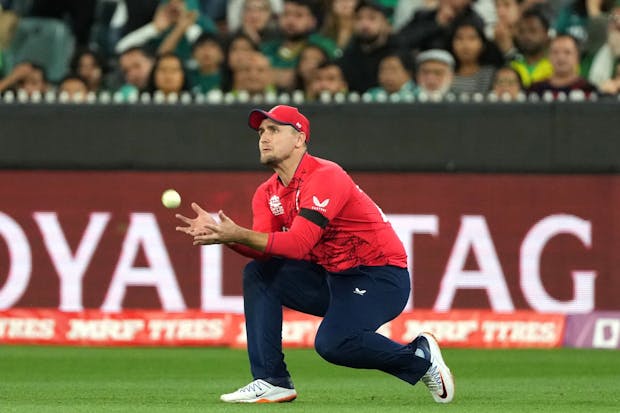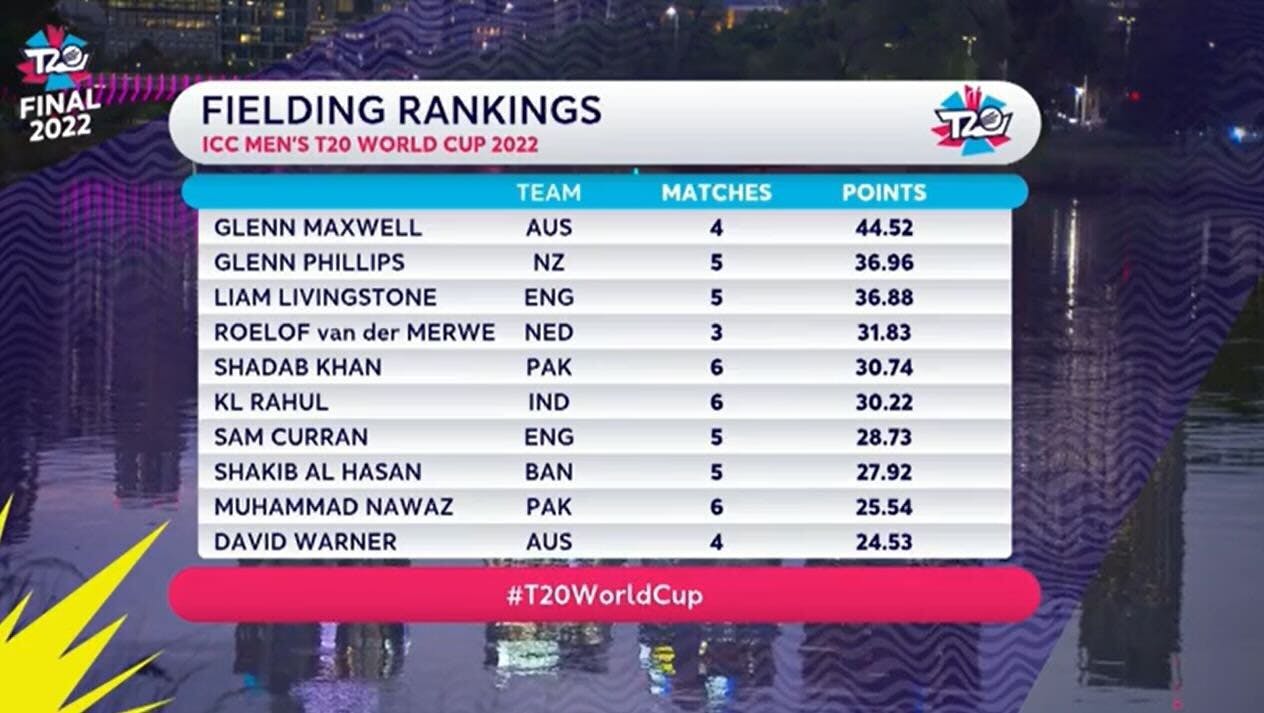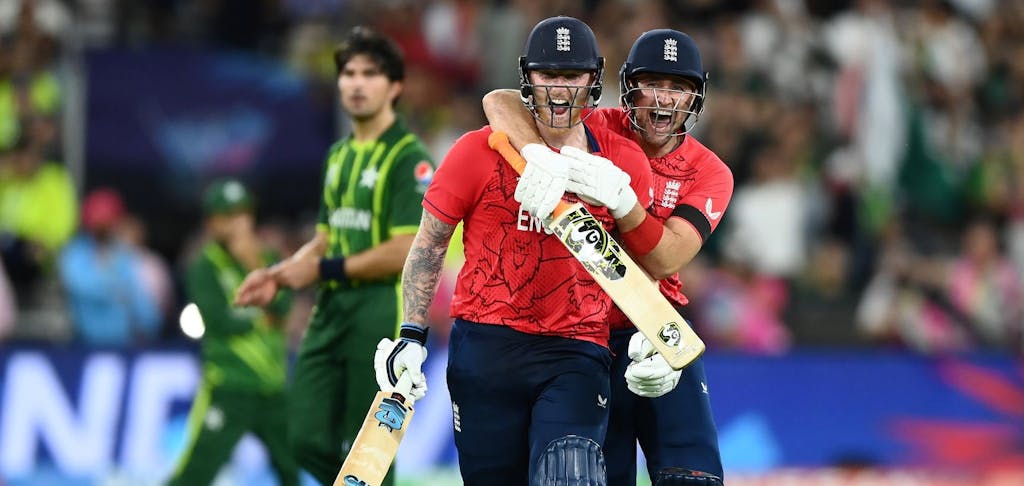
According to the ancient cricketing proverb, ‘catches win matches.’ However, until recently, cricket’s penchant for delving into the quantifiable technicalities of the sport was reserved for bowling and batting, rather than the oft-forgotten third discipline of fielding.
That narrative, though, is changing.
As the runs flowed and the wickets tumbled at the thrilling recent 2022 International Cricket Council (ICC) Men’s T20 World Cup in Australia, an innovative perspective of the action on the field offered a glimpse of exciting future opportunities.
Driven by Sportradar, the ICC’s official data supplier, live fielding data was captured for the very first time at the World Cup. The data powered the ICC’s fan-facing website and official mobile application, with insights derived from the data also provided to media outlets and broadcasters worldwide through bespoke feeds to bring a new dimension to their coverage.
Meaningful insights
The enhancements are potentially game-changing. Through Sportradar’s existing proprietary data-collection tool, up to 80 data points per ball bowled are captured, with no additional equipment required.
Key metrics include fielding positions for every ball, runs saved by fielding actions, and the difficulty of fielding actions like catches and run outs.
Furthermore, so-called “pressure events” are also recorded – essentially when extra effort is required in the field to pressure the striker or non-striker to return to the crease swiftly. These events can result in no outcome, runs saved, a run out opportunity or dismissal.
To transform the raw data into meaningful insights, an algorithm rates the difficulty of every run out attempt or catch. It also quantifies the number of runs each fielding action saves or costs and determines how much pressure a certain fielder has been able to exert on the batters.

These metrics can be converted into points for each fielder, with players starting a match at zero and moving into net positive or negative numbers, depending on their performance. At ICC Men’s T20 World Cup, the algorithm revealed the tournament’s top 10 most impactful fielders – with England’s Liam Livingstone taking top spot for individual performers, and his country and champions ranked as the best performing team in the field.
Algorithm challenge
According to Jarod Pickering, Sportradar’s head of cricket, refining the algorithm so that each fielding action was weighted appropriately – and comparing, for example, the value of a catch versus a good throw or run out attempt – was the biggest challenge.
However, in a sport famed for statistical insights that are enjoyed by fans and participants alike, he adds that the “huge milestone” of introducing fielding data into the mainstream cricket narrative provides significant opportunities for fan engagement, as well as coaching and player development.
“There has never been a way to gain insights into the third discipline of cricket, or objectively rank fielding performances before,” he says. “For example, many fans can argue about Player A versus Player B, but there has been no way to quantify these performances.
“However, our technology informs conversations and drives engagement, through broadcasts and coverage, as well as between fans.
“This additional data also enables and empowers second-screen experiences. For example, if you are watching a broadcast, you can see the field set for each ball through our data collection, even if the camera is not showing it. We did this throughout the ICC Men’s T20 World Cup on the ICC website.”
Enhancing fan engagement
Aside from enhancing media coverage, Pickering explains how the ICC and cricket boards can use “deeper, more accurate and reliable” fielding data to “create new and engaging fan experiences.” Furthermore, data gathered across all the sport’s disciplines can aid high-performance programmes.
“Sportradar looks to partner with these organisations to provide value,” he adds. “Our fielding data collection is one part of that offering and not a standalone product or service. Context around the data and assets to host and utilise it are also important.”
Sportradar is working on continuously improving the cricket data-capture process, strengthening the proposition for clients who have various applications for such insights.
Elaborating on the plans, he adds: “Sportradar is committed to servicing cricket and will continue to innovate in the space. This covers everything from speed of data capture and delivery to accuracy and reliability to the depth of data on offer through new and redefined metrics and algorithms.
“We are currently utilising artificial intelligence to generate more engaging text commentary powered by our data capture and will keep investing in new and emerging technologies to best lead the sport and the industry.”

Comprehensive service
Even before fielding data was introduced to the mix, Sportradar’s cricket-dedicated offering was already comprehensive.
In May 2021, the company bolstered its portfolio by announcing the takeover of InteractSport, a Melbourne-based sports technology and media provider, which specialises in cricket.
The successful integration provided a platform to explore new opportunities, with experts in the cricket space playing a central role in the development of the fielding data offering.
“We were already in the cricket data-collection space, with a product designed in-house, and we identified a gap in the market with fielding,” Pickering says. “We collaborated with a host of subject matter experts and stakeholders and added the ability to capture fielding data and fielding positions to our in-house product.”
This, Pickering adds, led to Sportradar in October 2021 striking a deal to serve as the ICC’s official data distribution partner, with the global agreement also including betting live streaming.
According to Sam Taylor, Sportradar’s managing director of strategy and sports solutions, the aim is “to create the world’s most intelligent cricket platform and the latest enhancements to our data capture tool are yet another step in this direction.”
Furthermore, it is clear that a passion for the sport itself will provide solid foundations, as exemplified by Sportradar’s work with cricket experts during the development of the fielding data-capture service.
“It has been really well received and we are excited to keep driving innovation in this space,” Pickering adds. “Our team are composed of cricket experts, and alongside our partners we are always looking for problems we think we can solve and value we can add – all for the benefit of the sport and its fans.”